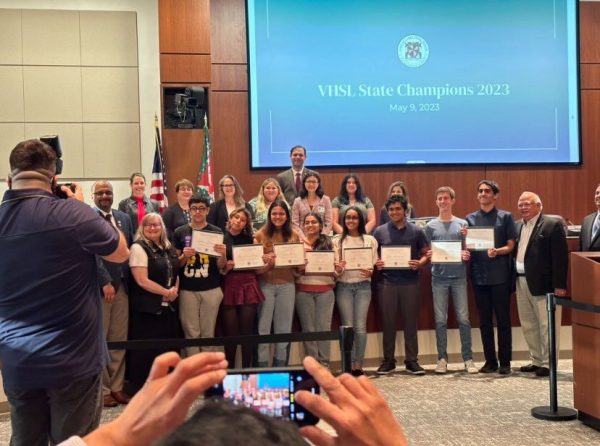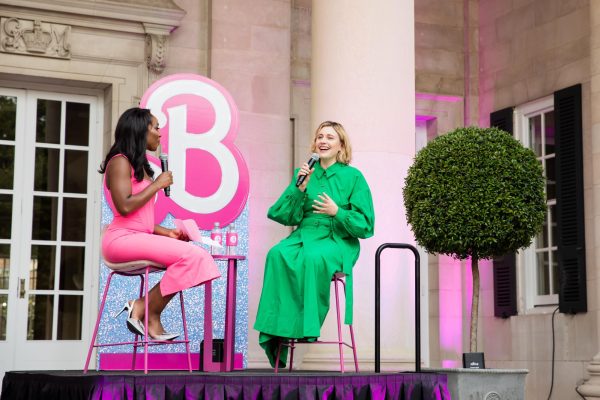Honorable Mention Award Winning NYT Review by Mahika Bhatt
Never Have I Ever, and No One Ever Should
The Netflix original series Never Have I Ever (NHIE) stars a South Asian main character and boasts progressive representation in a heartfelt coming-of-age show. However, as saturated with color, drama, and character as this show is, any promises to surpass stereotypes are surface-level at best. NHIE is kind of funny, usually overdramatic, and always alluding to a beautiful finish, that is, if you’re willing to keep watching.
Unsurprisingly, the problem lies in the show’s writing. Written and directed by Mindy Kaling, known for her role as Kelly Kapoor on The Office, NHIE follows in the footsteps of The Office and The Mindy Project to deliver tired, heavy-handed jokes that make the audience cringe more than laugh. The show is a sickly-sweet ode to nerds that simultaneously makes a pasty, food-obsessed dork the comedic punching bag of nearly every episode. Though Devi’s healing process after her father’s death is perfectly emotional and beautifully written, it is often undermined by baseless storylines, like her psychosomatic paralysis that is magically cured by a sighting of her crush. Oh yeah. Her “super-senior” crush offsets the “nerd wants to be cool by having sex” trope with a wildly inappropriate onscreen pairing: 29-year-old Darren Bennet and 18-year-old Maitreyi Ramakrishnan.
Adding to the list of irresponsible gags, every piece of new information the audience learns about Ben, one of the show’s only Jewish characters, is riddled with stereotypes. Ben is a wealthy, pretentious nerd, with a workaholic father, who cried anti-semitism over a rejected class project. The series does, however, make massive strides with its side characters. Fabiola is a black, female and queer captain of the robotics team, Elenor is a very dramatic thespian who combats the docile Asian woman stereotype with her mom, and Rebecca is an aspiring fashion designer with down syndrome; they are rarely defined by their identities, which alone is groundbreaking. In contrast, the Vishwakumars are overwhelmed with stereotypes about arranged marriage, overbearing parents, casteism, and servants.
Ultimately, NHIE falls short because it plays it safe, neither omitting stereotypes entirely nor explicitly opposing them. The audience knows that Devi’s character arc should be discovering self-love. Instead, for the first two seasons, her most prominent fulfillment seems to be discovering a different love interest— a white boy who cares about her (gasp!)— could be the one. While NHIE claims to be an inclusive and diverse media production, it is instead a bottomless pit of tone-deaf stereotypes, pitches to an unclear audience, and missed opportunities.
It’s an almost funny, sort of impactful, halfway inspirational story about a girl re-finding herself and her faith in family and culture. Or at least it should’ve been.
Your donation will support the student journalists of Woodgrove High School. Your contribution will allow us to purchase equipment, attend conferences, and cover our annual printing and website hosting costs.








